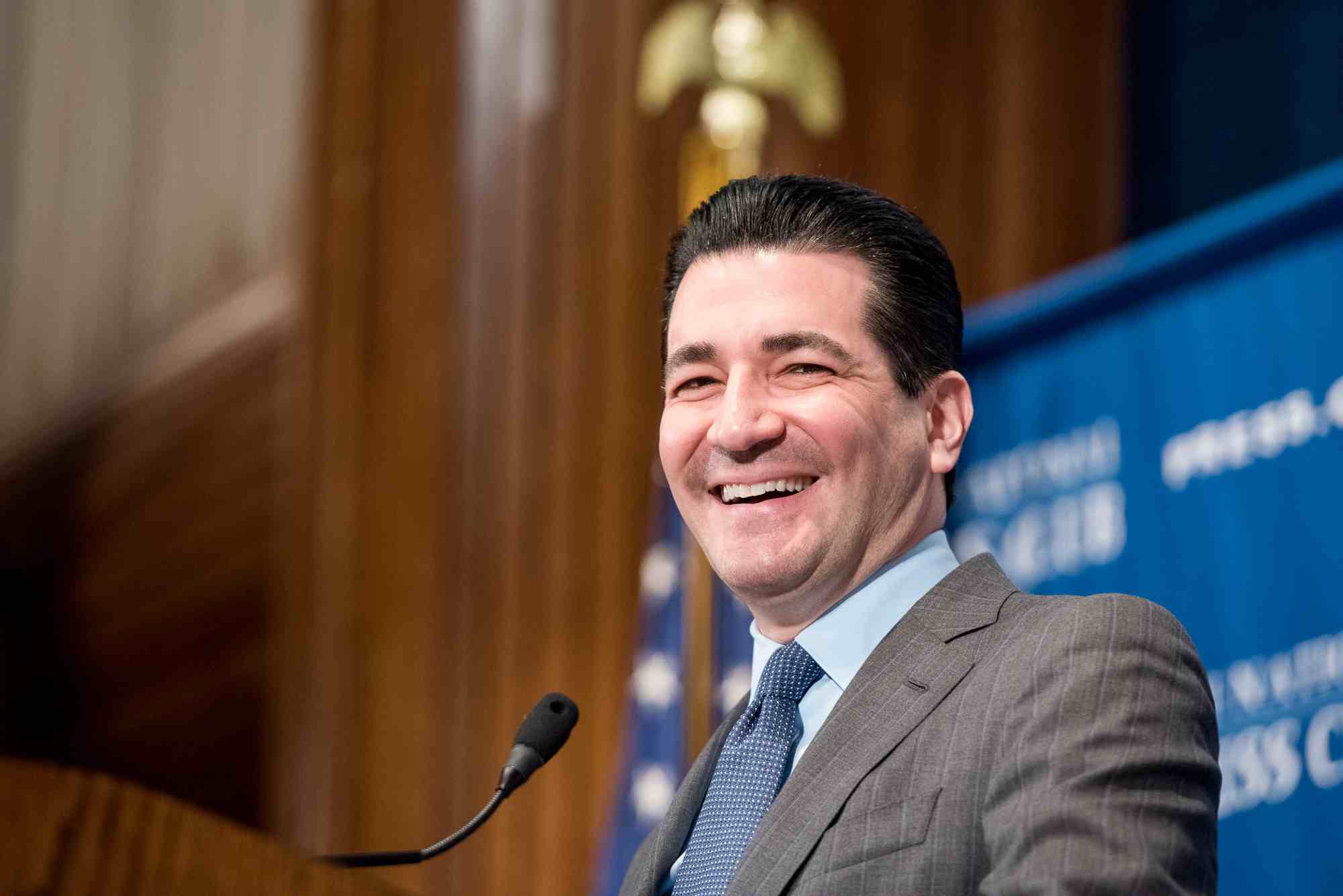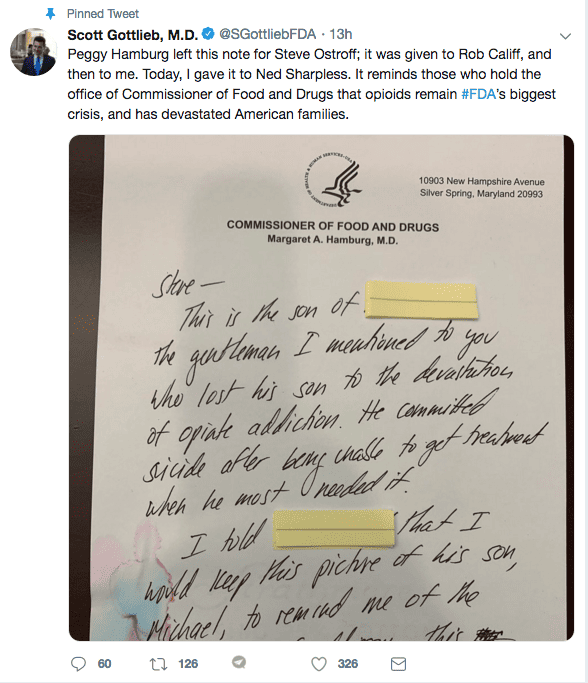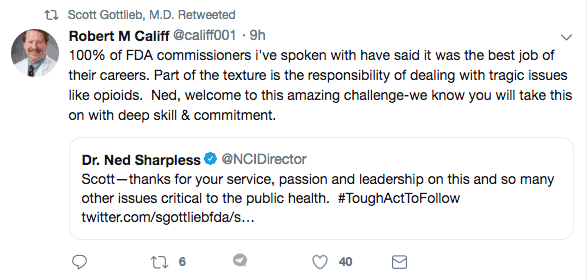
Scott Gottlieb signed off from his remarkable but brief tenure as FDA commissioner yesterday, completing his final week with a series of announcements across priority areas.
Gottlieb has served less than two years in the post, but has proven to be one of the most energetic, reforming and outspoken FDA commissioners in recent memory, earning praise from politicians, regulators and the pharma industry for his leadership.
This was based on Gottlieb’s bold approach to addressing unnecessary barriers to innovative medicines approvals, while at the same time tackling bottlenecks in generic drug approvals and pricing and competition issues, including ‘naming and shaming’ companies which obstruct generic competition.
He now hands over to interim FDA commissioner Ned Sharpless, formerly head of the National Cancer Institute (NCI), but ended his final days in the post with a redoubled focus on key issues. These included promoting AI-based medical devices, new regulatory pathways for cannabis-based medicines, combating illegal online sales of opioids, renewing efforts to cut smoking and tobacco use, and bringing competition to US insulin markets.
This final issue was the subject of one of Gottlieb’s parting shots yesterday.
The high price of insulin is in the US headlines at the moment, with companies such as Novo Nordisk, Lilly and Sanofi under growing pressure to explain why their products have tripled in price between 2002 and 2013 and doubled between 2012 and 2016.
The US House Energy and Commerce oversight subcommittee is currently conducting a public inquiry into insulin prices (alongside several other similar probes), and Lilly, Novo Nordisk and Sanofi will all testify to the committee on 10 April.
Yesterday Gottlieb issued a statement recommitting the FDA to changes in how insulin products are regulated. They are currently covered by the Federal Food, Drug, and Cosmetic Act, a regulatory framework which has made it difficult for generics firms to bring their own biosimilar insulin products to market.
The FDA now aims to switch insulin products to the Public Health Service Act, which governs most FDA biologic product approvals, a move that should create a more robust approval pathway for cheaper rivals.
This transition will take effect in 2020, and Gottlieb announced a public hearing to discuss affordable insulin products with stakeholders, which will include the evaluation process for data and other information submitted by applicants seeking to use the new pathway.
“A drug that’s nearly a century old should not have a list price that increases between 15-17% annually,” he wrote.
“American patients who rely on insulin to live deserve to have high-quality, affordable options. The FDA is dedicated to facilitating access to insulin. We hope our industry partners will join us in doing all we can to help people who need access to the live saving medicines, now.”
These remarks add to commentary Gottlieb made on the wider question of competition and drug prices last week at a Alliance for a Stronger FDA meeting last week.
Talking in a ‘fireside chat’ with former FDA commissioner Mark McClellan, Gottlieb commented on the ongoing debate about how the US should control its drug prices.
He said he believed area there should be price competition in Medicare Part B, which covers medicines dispensed in the doctor’s office.
“The government is largely a price taker [in Part B] and those drugs aren’t competitively bid; I think we need to think about that,” he said.
This would once have been a radical view for anyone in the US, let alone for a politically-appointed FDA commissioner, but the drug pricing debate has moved on during the Trump presidency and in Gottlieb’s tenure.
Asked to comment further, Gottlieb demurred on this occasion, but concluded: “Well, I’ll have a lot more to say on that in about seven days”.
Losing Gottlieb’s dynamism, FDA-watchers are also concerned that it could take a long time for a permanent successor to be appointed, as the Trump administration has a poor record in filling many senior posts across government. However, in Twitter exchanges with his immediate predecessor Robert Califf and new commissioner Sharpless, the emphasis was on continuity.






